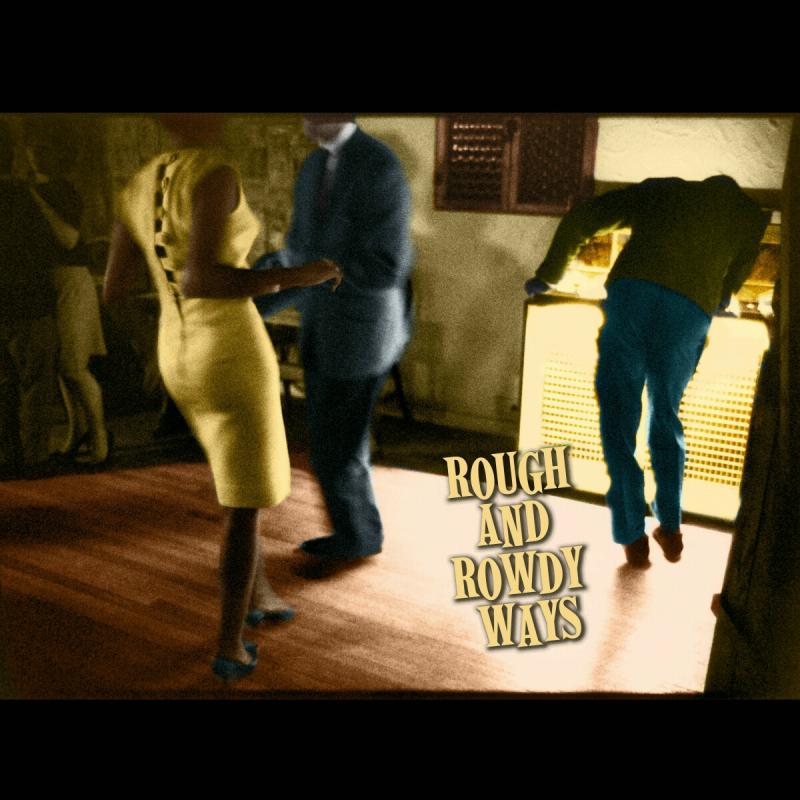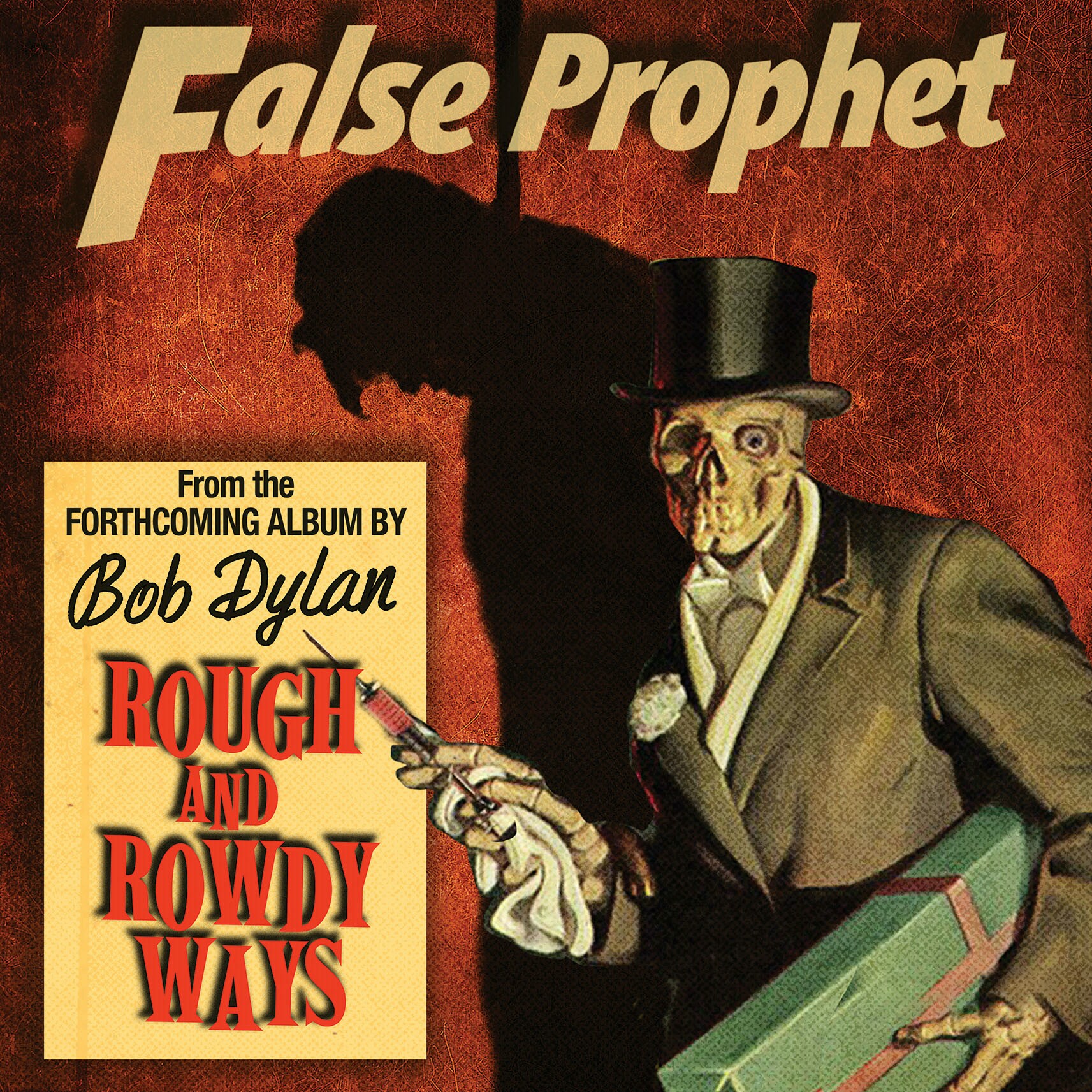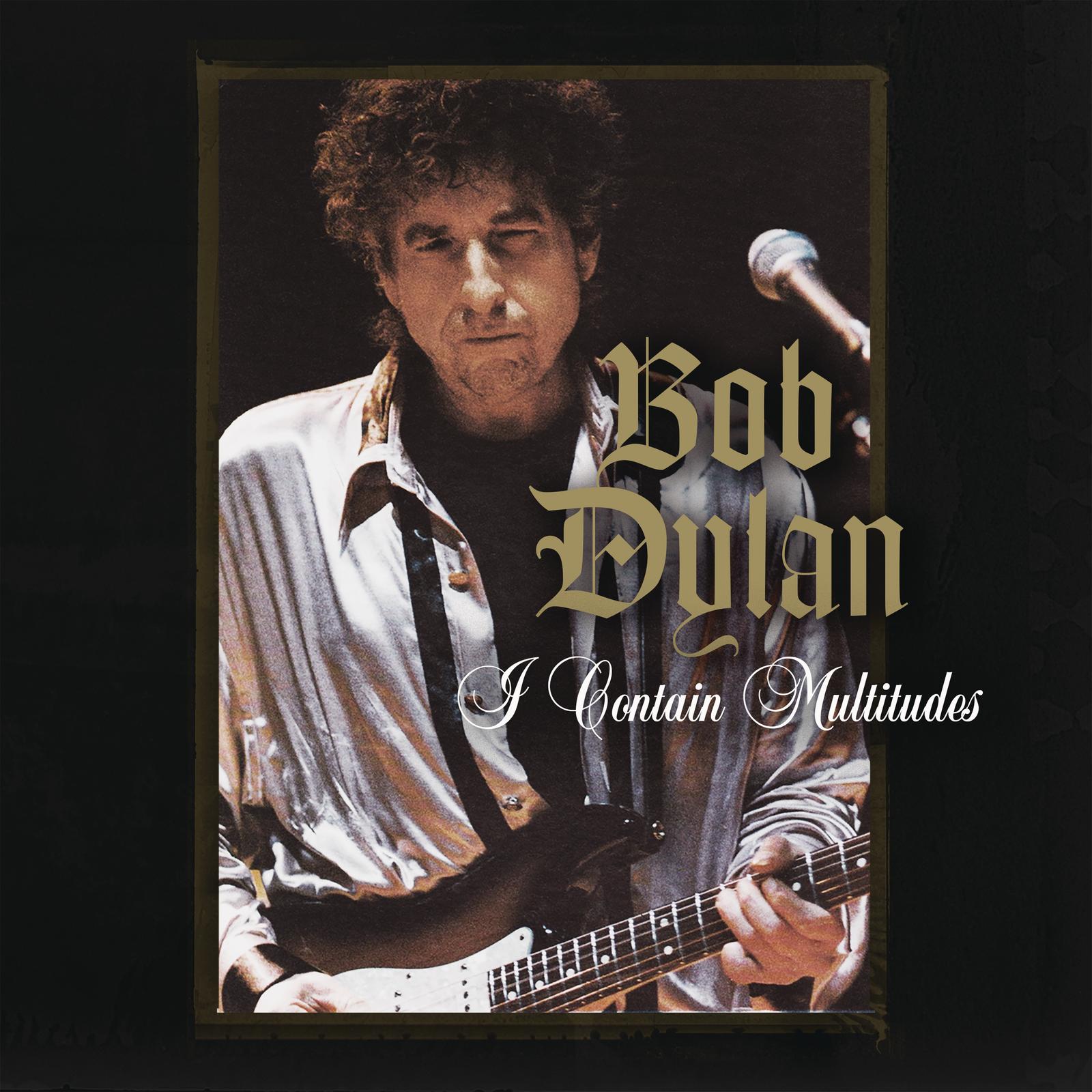CD: Bob Dylan - Rough and Rowdy Ways | reviews, news & interviews
CD: Bob Dylan - Rough and Rowdy Ways
CD: Bob Dylan - Rough and Rowdy Ways
Bob returns with an unadulturated, stone-cold masterpiece

When “Murder Most Foul” was dropped into an unsuspecting world under lockdown, the surprise was palpable, given that eight years had passed since Tempest, filled by Sinatra covers and seasonal tours. That it was a 16-minute epic that took Dylan’s writing into new areas (including No1 on Billboard) – and this on the verge of his eightieth year – is also astonishing.
 Two more songs have also been released, “I Contain Multitudes” and “False Prophet”. Both turn out to be bigger on the inside than the outside. “Multitudes” brushes through a plethora of places, characters and times, and opens the door onto one of the strangest, strongest and plain weirdest of all Dylan’s albums. It’s a first-person song, but the ‘I’ has never felt less individual, packed as it is with the inner multitudes of experience, age, persona, projection, association and shared culture.
Two more songs have also been released, “I Contain Multitudes” and “False Prophet”. Both turn out to be bigger on the inside than the outside. “Multitudes” brushes through a plethora of places, characters and times, and opens the door onto one of the strangest, strongest and plain weirdest of all Dylan’s albums. It’s a first-person song, but the ‘I’ has never felt less individual, packed as it is with the inner multitudes of experience, age, persona, projection, association and shared culture.
And so it is throughout this magnificent album, where the first person is a fractured entity, blown open wide. As serene as the surface of the music often is, there’s a restless and protean poetry broiling down below, embracing multitudes and leaving plenty of loose ends to tease out and chew over. At times I feel the influence of Western Lands-era William Burroughs, not that Dylan’s taking from him so much as expanding on the principles and the results of Burroughs’ methods, embedding them in the structure of the songs.
“False Prophet” carries Dylan’s heavily barked voice on a slow march, a beat as heavy as nails hammered into a coffin. The lyrics are a bragging, proclaiming blizzard of imagery slipping between Iron Age and classic film noir, peopled by the folk and blues traditions’ stock company of players and settings.
“My Own Version of You”, meanwhile, is a gentle, funny, creepy, evocative – a weird Frankenstein-meets-Reanimator tale, set to a spiralling rhythm, at times with some of the spirit of Oh Mercy’s “Man In The Long Black Coat”. The opening lines are darkly funny, brilliantly delivered: “All through the summer into January, I’ve been visiting morgues and monasteries, looking for the necessary body parts, limbs and livers and brains and hearts.” It’s hardly a Valentine’s. Verse after great verse lead off at tangents before returning to the shifting chorus, a genius song that roams far but holds tight.
As serene as the surface of the music often is, there’s a restless and protean poetry broiling down below, embracing multitudes“I’ve Made Up My Mind to Give Myself To You” is sung gorgeously, captured perfectly, played subtly, set up on a circling vocal chorus. It’s a song of devotion, but not necessarily devotion to any human or worldly object of affection. It’s paired with “The Black Rider”, a song possibly drawing from the play of the same name by William Burroughs, Tom Waits and Robert Wilson. It circles quietly around the figure of death, its wagons hitched up to the fleeting and ruling passions emptying out of life – rage, love, suffering, fortitude, fear. It’s beautifully spare in instrumentation – one of the few Dylan band recordings without a drummer – and hauntingly sung.
Cranking it back up to life is a raucous tribute to bluesman Jimmy Reed, a Highway 61-style rocker with plenty of arresting, crackling, lascivious verses – “Transparent woman in a transparent dress, suits you well I must confess – I’ll break open your grapes and suck out your juice, I need you like a head needs a noose.” To follow, and in stark contrast, “Mother of Muses” is lush, slow and stately, its arrangement leaving plenty of air and space in the song, adding to its profound sense of timelessness. The lyrics are steeped in classical mythology.
As is “Crossing The Rubicon”, which features the album’s biggest burst of harmonica (alongside a blow or two on "Goodbye Jimmy Reed" ), cranking up from the get-go to become another album – and career – highlight. Dylan is at his mercurial best here, declaiming vivid tableaux over a blues steeped in the blood of the ancients, the heroes of Homer and Julius Caesar slitting the throats of their foe. Over seven and half glorious minutes, verses return again and again to that point of no return, and all the irreversible ways of getting there, and crossing the Rubicon.
 Which brings us to “Key West (Philosopher Pirate)”, the first disc’s final song (“Murder Most Foul” stands alone on the second), and its longest. It’s carried on a soft, see-sawing riff overlaid by accordion, it’s atmospherics summoning up an American road trip into the Elysium Fields, where the likes of Hemingway, Tennessee Williams and Shel Silverstein once found homes. Maybe Dylan has a home there too. Maybe he’s got some real estate he wants to boost, because he sure makes Key West sound welcoming. It’s casual, metaphysical, full of detail, wonderfully sung – I heard touches of Blood on the Tracks and even Nashville Skyline rise out of the music here and there – with Dylan the intuitive master lyricist making his spring-heeled way through a plethora of times, faces and places, all returning to roost on that two-word sign, Key West.
Which brings us to “Key West (Philosopher Pirate)”, the first disc’s final song (“Murder Most Foul” stands alone on the second), and its longest. It’s carried on a soft, see-sawing riff overlaid by accordion, it’s atmospherics summoning up an American road trip into the Elysium Fields, where the likes of Hemingway, Tennessee Williams and Shel Silverstein once found homes. Maybe Dylan has a home there too. Maybe he’s got some real estate he wants to boost, because he sure makes Key West sound welcoming. It’s casual, metaphysical, full of detail, wonderfully sung – I heard touches of Blood on the Tracks and even Nashville Skyline rise out of the music here and there – with Dylan the intuitive master lyricist making his spring-heeled way through a plethora of times, faces and places, all returning to roost on that two-word sign, Key West.
What to make of it all? It’s a masterpiece. Even after repeated and detailed listens, it feels endless and bottomless. What a piece of work. It’s bizarre, eccentric, unlike anything else he or anyone else has done. It ranks with the very best. Entropy is meant to be the third universal law of the universe, so for a 79-year-old artist to produce a work of such expansiveness, humanity and mystery – well that might be the greatest mystery of all.
rating
Share this article
Add comment
The future of Arts Journalism
You can stop theartsdesk.com closing!
We urgently need financing to survive. Our fundraising drive has thus far raised £49,000 but we need to reach £100,000 or we will be forced to close. Please contribute here: https://gofund.me/c3f6033d
And if you can forward this information to anyone who might assist, we’d be grateful.

Subscribe to theartsdesk.com
Thank you for continuing to read our work on theartsdesk.com. For unlimited access to every article in its entirety, including our archive of more than 15,000 pieces, we're asking for £5 per month or £40 per year. We feel it's a very good deal, and hope you do too.
To take a subscription now simply click here.
And if you're looking for that extra gift for a friend or family member, why not treat them to a theartsdesk.com gift subscription?
more New music
 Album: Mulatu Astatke - Mulatu Plays Mulatu
An album full of life, coinciding with a 'farewell tour'
Album: Mulatu Astatke - Mulatu Plays Mulatu
An album full of life, coinciding with a 'farewell tour'
 Music Reissues Weekly: Sly and the Family Stone - The First Family: Live At Winchester Cathedral 1967
Must-have, first-ever release of the earliest document of the legendary soul outfit
Music Reissues Weekly: Sly and the Family Stone - The First Family: Live At Winchester Cathedral 1967
Must-have, first-ever release of the earliest document of the legendary soul outfit
 Album: Robert Plant - Saving Grace
Mellow delight from former Zep lead
Album: Robert Plant - Saving Grace
Mellow delight from former Zep lead
 Brìghde Chaimbeul, Round Chapel review - enchantment in East London
Inscrutable purveyor of experimental Celtic music summons creepiness and intensity
Brìghde Chaimbeul, Round Chapel review - enchantment in East London
Inscrutable purveyor of experimental Celtic music summons creepiness and intensity
 Album: NewDad - Altar
The hard-gigging trio yearns for old Ireland – and blasts music biz exploitation
Album: NewDad - Altar
The hard-gigging trio yearns for old Ireland – and blasts music biz exploitation
 First Person: Musician ALA.NI on how thoughts of empire and reparation influenced a song
She usually sings about affairs of the heart - 'TIEF' is different, explains the star
First Person: Musician ALA.NI on how thoughts of empire and reparation influenced a song
She usually sings about affairs of the heart - 'TIEF' is different, explains the star
 Album: The Divine Comedy - Rainy Sunday Afternoon
Neil Hannon takes stock, and the result will certainly keep his existing crowd happy
Album: The Divine Comedy - Rainy Sunday Afternoon
Neil Hannon takes stock, and the result will certainly keep his existing crowd happy
 Music Reissues Weekly: Robyn - Robyn 20th-Anniversary Edition
Landmark Swedish pop album hits shops one more time
Music Reissues Weekly: Robyn - Robyn 20th-Anniversary Edition
Landmark Swedish pop album hits shops one more time
 Album: Twenty One Pilots - Breach
Ohio mainstream superstar duo wrap up their 10 year narrative
Album: Twenty One Pilots - Breach
Ohio mainstream superstar duo wrap up their 10 year narrative
 Album: Ed Sheeran - Play
A mound of ear displeasure to add to the global superstar's already gigantic stockpile
Album: Ed Sheeran - Play
A mound of ear displeasure to add to the global superstar's already gigantic stockpile
 Album: Motion City Soundtrack - The Same Old Wasted Wonderful World
A solid return for the emo veterans
Album: Motion City Soundtrack - The Same Old Wasted Wonderful World
A solid return for the emo veterans
 Album: Baxter Dury - Allbarone
The don diversifies into disco
Album: Baxter Dury - Allbarone
The don diversifies into disco

Comments
Note spelling of blues singer
Great review. Just to add
'..for a 79-year-old artist